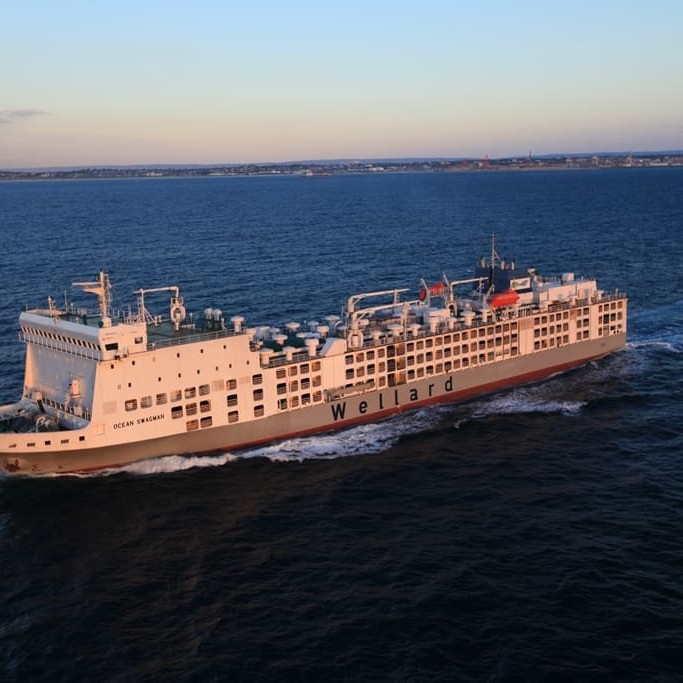 Strong rumours are circulating around the live export and meat trade in Indonesia this afternoon that the Indonesian Government may be about to announce drastic cuts to cattle and meat import quotas next year.
Strong rumours are circulating around the live export and meat trade in Indonesia this afternoon that the Indonesian Government may be about to announce drastic cuts to cattle and meat import quotas next year.
It has been suggested by reliable sources, and supported in Jakarta media reports this afternoon, that permits may be issued for a total of only 283,000 head of live cattle for 2012.
That’s little more than half the 2011 quota of about 520,000 cattle, of which Australia is expected to complete supply of about 410,000 head by the time this year’s trade finishes in a fortnight. Impacting badly on supply this year was the two-month market closure caused by the halt on trade created by the Federal Government’s ban earlier this year.
The suggested 2012 quota figure is dramatically lower than a 20pc reduction in live cattle import quota suggested by Indonesian authorities in late September.
Indonesian media source Micom this afternoon quoted agriculture minister Suswono as saying Indonesia planned to import only 20 percent of its overall beef requirement for 2012, based the Government’s stated desire to reach self-sufficiency in beef over the next few years, and the increase in the nation’s own cattle population.
After attending a meeting of the Coordinating Ministry for Economic Food on Wednesday, Dr Suswono was quoted as saying about 280,000 head of cattle would be imported, to fill a requirement for 34,000t of beef next year – the demand shortfall beyond what Indonesia believed it could produce from its own herd in 2012.
Dr Suswono said a Government forecast had estimated that average annual consumption of beef would rise to just short of 2kg/person next year – up from 1.67kg/person this year – suggesting an overall beef requirement of 480,000t from all sources.
Indonesia’s census for beef cattle and buffalo this year had suggested the domestic cattle population had grown to 14.8 million head, with dairy cow numbers now 597,000 head.
If the domestic cattle industry could supply 2.5 million slaughter cattle each year, without detriment to the size of the existing beef cattle population, the government was ready to stop beef imports, Dr Suswono told Indonesian media.
Based on the census, Indonesia’s domestic herd could produce 399,000t next year, he said. That left a requirement for 2012 imports of meat and livestock totalling only 85,000t, boneless equivalent.
Boxed beef imports, similarly, may be greatly restricted next year by an import quota totalling 35,000t, Beef Central’s sources said today.
This year, the boxed beef quota to Indonesia (all supplier countries, including Australia, the US, New Zealand) was about 90,000t, of which Australia shipped about 41,069t for the 12 months ended October. Contrast this with same period a year earlier when 51,693t was shipped from Australia.
A reliable meat export trade source said while the rumoured 35,000t quota figure sounded ‘extraordinarily low’, he would put nothing past the Indonesian Government, given its recent actions. Australian exporters suffered through four months of crisis last year with beef containers sitting on the wharves in Indonesia, caught in an import permit limbo that cost millions of dollars.
Live export contacts reached this afternoon were concerned about the latest rumours out of Jakarta.
By any measure, if the suggested live export figure is reliable, it will have a significant impact on Australia’s live export industry.
“Obviously a quota figure of 280,000 head of cattle is an extreme cut on what it was on last year of 520,000,” he said.
“We would be looking to get clarification on that, and the details of why it is 280,000, and what the rules and regulations around that will be. But it is very concerning.”
Asked how the industry would handle a cut of this size on top of the impact of the Federal Government’s ban on live export earlier this year, Mr MacKinnon said it would put the industry under "enormous pressure".
“We will have to work through it,” he said. “We’re going have to find out what the details are around it and why it is like it is, and where that figure comes from. It just adds extra pressure onto the industry.”
“I have said it before, this is a resilient industry – I’m sure we will make it work, but 280,000 is a huge cut on what the market size was previously.”
Indonesia has been Australia’s largest live export market by a considerable margin for several years. Work to expand markets such as Turkey and the Middle East has picked up some of the slack left by the shortfall in exports to Indonesia earlier this year.
“But it’s a big leap between a new market and replacing a long-established, mature market,” Mr McKinnon said.
WA live export industry mermber Tim Darcy suggested that the quota reduction was a form of payback for the Australian Government's decision to close the market in June on animal welfare grounds. An Indonesian spokesman for Ag Minister Suswono denied this, saying the decision was aligned squarely with Indonesia's desire to move to self-sufficiency in beef production.
To receive Beef Central's free daily news headlines by email every morning, enter your email address into the "Stay up to Date" box at the top right hand corner of the Beef Central home page
